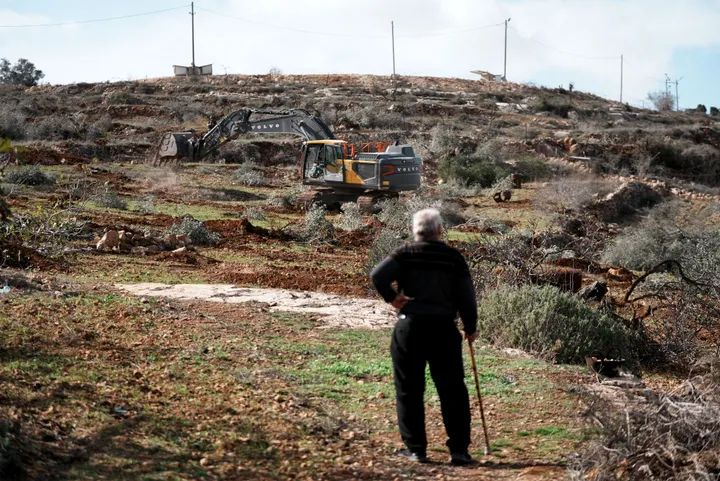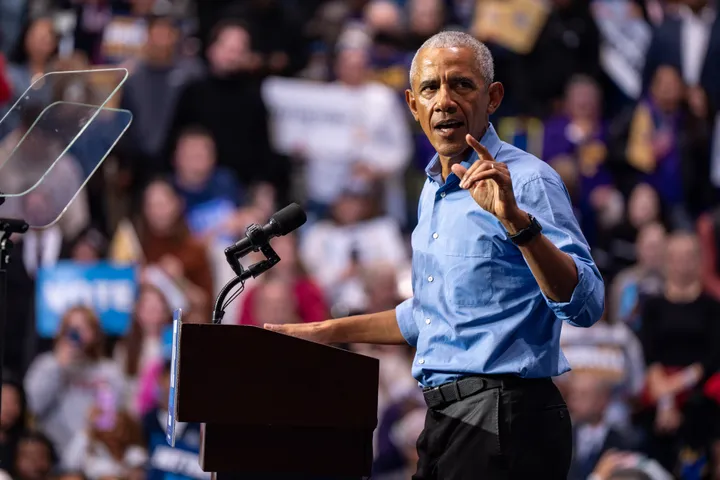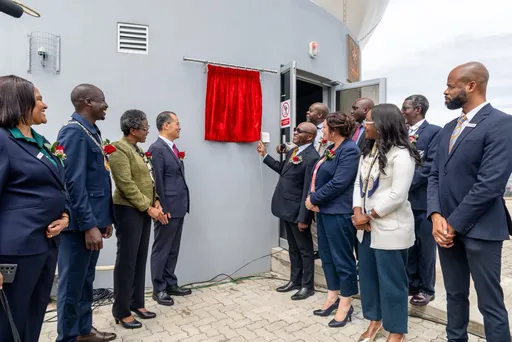By Abdulwasiu Hassan
Ibrahim Garba Wala can't get over the shock of seeing a business venture that took years of perseverance and toil to build being destroyed in a few minutes of unmitigated mob fury.
The Kano-based entrepreneur, who owns the online start-ups ShawaliNG.com and FundME, isn't the only one counting his losses as Nigeria grapples with a surge of street unrest over hyperinflation stoked by the removal of fuel subsidy.
"We lost everything we had in the building that houses our headquarters," Wala tells TRT Afrika.
"Furniture, computers, refrigerators, microwaves, dispensers, documents – everything was stolen or destroyed. Even the windows and doorframes were removed."
The protests were meant to draw the government's attention to how the rising cost of living was bearing down on households across Africa's most populous country.
Instead, the agitation quickly degenerated into a looting spree involving mobs descending on government and private establishments.
In an address to Nigerians, President Bola Tinubu called for the protests to be shelved, saying the government had taken note of the people's grievances.
"The protests, which turned violent in some parts of our nation, have caused unimaginable pain and loss, particularly to the families of those who have tragically lost their lives," he said. "Our nation's resources are stretched thin as we rebuild what has been destroyed."
Brazen destruction
The newly built Digital Industrial Park in Kano State, conceived as an innovation, capacity-building and commercial hub for new-age businesses, was among the state-owned assets targeted by mobs.
The sight of vandals carting away computers and accessories meant to build digital skills symbolised the scale of the looting.
"Sad to learn that our Digital Innovation Park in Kano slated for launch next week to support our technical talent accelerator (3MTT) has been set ablaze and looted by protesters," Nigeria's minister of communications, innovation and digital economy wrote on his X handle on August 1.
Social media has been abuzz with pictures and videos of the looting in some of the other affected states, including Kaduna and Gombe.
As of August 4, the quantum of losses countrywide was officially pegged at N5 billion (US $31 million). Industry, trade and investment minister Dr Doris Nkiruka Uzoka-Anite terms it "economic sabotage".
Businesses like Barakat Stores, a landmark supermarket in Kano that was targeted by a mob, say the damage to the economy would run into many more billions than initially estimated.
"We seek God's and the government's help to tide over this," a Barakat representative tells TRT Afrika.
Wala is still trying to make a detailed estimate of the value of the furniture, computers, electronics, and other things that were destroyed or looted. An insurer valued the total assets at over 75 million naira.
Dent in job market
Many people who work in the private establishments that were looted have lost their livelihood.
"The most disturbing part of what has happened since the beginning of August is the number of families that have lost their source of earnings. How can you sustain jobs if the business is unable to survive?" Wala tells TRT Afrika.
The entrepreneur employs 30 staff members and over 100 field agents in Kano and the other affected states.
Barakat Stores has had to let go of staff because of huge losses.
"Before the looting spree, over 300 people used to earn a livelihood through the shop," says an official of Barakat Stores. "So many people are going to the labour market as they no longer have regular jobs."
Fear of reinvesting
Businesses that have borne the brunt of the looting since the agitation started are apprehensive about investing money to revive them because of the uncertainty around them.
"Honestly speaking, I have lost confidence in investing in Kano or any other place in Nigeria for that matter," Wala tells TRT Afrika.
The owners of Barakat Stores share this sentiment, although theirs is a traditional business rooted in Kano.
"Whenever something like this happens, it will deter people from coming forward to invest, build businesses and create jobs. Ultimately, the state will remain under-developed, and there will be more idle people around in the absence of jobs," says an official.
Wala intends to change his strategy if and when he decides to reinvest.
"I will avoid states that are vulnerable in terms of security. I am even considering relocating my businesses outside the country for the moment so that we can run operations remotely and maybe outsource some aspects to local partners," he explains.
Either way, business owners hope the government will safeguard the economic environment and better prepare for potential disruptions.
"It is imperative for the government to ensure that wherever there are businesses, they need to be protected. Why wait for businesses to ask for security? That should be a given," says Wala.
➤ Click here to follow our WhatsApp channel for more stories.























